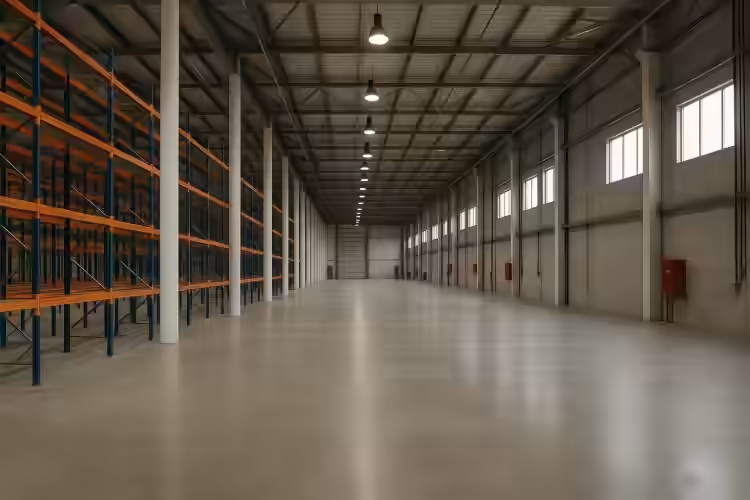Industrial Lease Renewals: When and How to Negotiate
Why Renewal Negotiation Matters
You’ve been in your warehouse space for a few years. Things are running smoothly. Your team knows the flow, deliveries are on time, and operations are solid. Then boom — the lease renewal notice hits your inbox. You could sign it and get on withyour life. Or… you could negotiate. And honestly, you should.
Here’s the deal: landlords expect tenants to renegotiate. That "standard" 3% annual increase? Not always written in stone. That HVAC clause that stung last time? It's not untouchable. Renewing blindly is like auto-renewing a gym membership
you don’t use — convenient, but potentially expensive. And in today’s market — whether you’re in
Dallas, Texas or
Ontario, California — the delta between old rates and current comps can be big enough to make or break your budget.
Start Early: How Early Is Early Enough?
Short answer? At least 6 to 9 months before your lease ends. In some hot markets, even earlier. Why so early? Because commercial lease negotiations move sloooow. Think of it like ordering a custom piece of machinery. You can’t expect same-day shipping.Starting early gives you time to:
- Review your lease and obligations
- Survey the market and evaluate alternatives
- Build leverage with real relocation options
Know Your Market: Knowledge Is Power
You can’t negotiate in a vacuum. Whether you’re renewing inChicago, Illinois or
Atlanta, Georgia, you need to know the going rate per square foot in your submarket. Industrial rents have jumped in many places over the last few years. But so have concessions. If vacancy rates are creeping up or your landlord has several
empty units, you’ve got leverage. Here’s what to look at:
- Current market lease rates for similar properties
- Vacancy rates and absorption in your area
- New inventory coming online (which softens prices)
- What incentives landlords are offering new tenants
What to Negotiate (Don’t Just Look at Rent)
Rent is obvious. But there’s so much more on the table. Here are some areas you might not have considered:Operating Expenses
Are you paying a fair share of CAM (Common Area Maintenance)? Are you getting clear breakdowns? Is there a cap on annual increases?Repairs and Maintenance
Many industrial leases are triple net (NNN), pushing repair responsibilities on tenants. But that doesn’t mean it can’t be negotiated. That ancient HVAC unit? Try to get the landlord to replace or at least share the cost.Lease Term & Flexibility
Do you need more flexibility now? Maybe your business is scaling quickly. Ask for renewal options, expansion rights, or early termination clauses.Tenant Improvement (TI) Allowance
Yes, even on a renewal, you can sometimes get a TI refresh. Especially if the landlord wants to keep you happy and avoid vacancy.How to Negotiate Like a Pro
Let’s be real — unless you’re in commercial real estate day in and day out, this stuff can get technical. Here are a few tried-and-true tips:1. Get a Broker (Even for a Renewal)
People assume renewals are just between them and their landlord. But a savvy tenant rep broker can bring comps, identify red flags, and push the conversation further than you might alone. And guess what? The landlord usually pays their fee.2. Play Up Your Value
Long-term tenant? Low maintenance? Always paid on time? Use that. Landlords want stable cash flow. You are an *asset*. Remind them.3. Shop the Market
Even if you don’t plan to move, get a few tour quotes. A real backup space gives you real leverage.4. Never Accept the First Offer
This isn’t Target. There's room to haggle. Counter. Ask for concessions. Use silence as a tool. A little discomfort often pays off.Signs You Should Walk Away
Sometimes, the best negotiation tactic is... walking away. Or at least being willing to. Here are a few red flags that should give you pause:- Massive rent jump with no added value
- Landlord unwilling to maintain key infrastructure
- Changes in the neighborhood that hurt your ops or security
- You’ve simply outgrown the space (physically or operationally)
Final Thoughts: The Value of Leverage
A lease renewal is your chance to course-correct. To stop overpaying. To fix past oversights. To secure terms that better reflect your current business and the market around you. But none of that happens if you just sign on the dotted line withouta second thought.
So what does that mean for you? Start early. Do your homework. Ask for what you want. And don’t be afraid to walk away. Because in commercial real estate, just like in business — leverage is everything.

